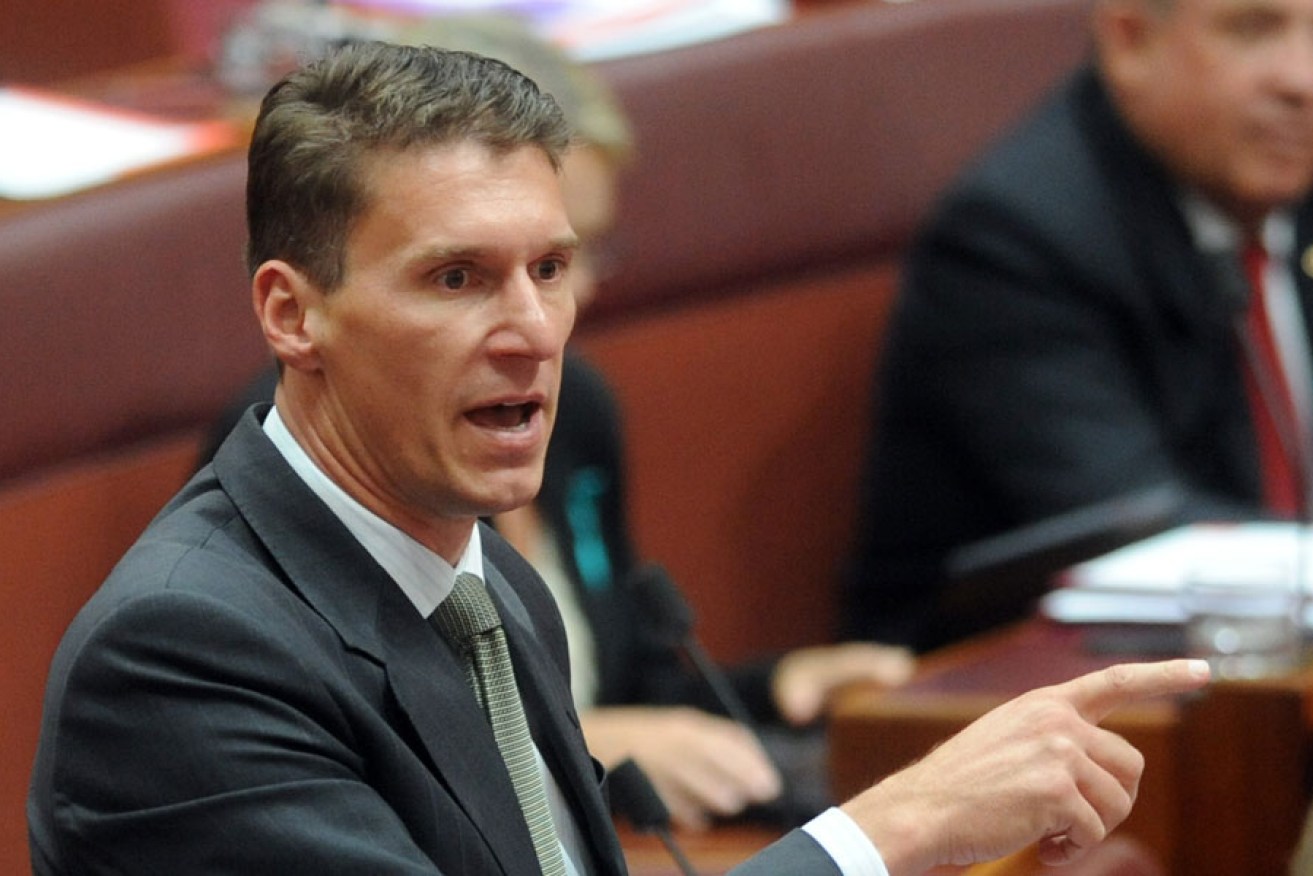How conservative is Cory?

Cory Bernardi embraces the term "conservative" but is he really?
Senator Cory Bernardi brands himself as a “common sense conservative” who is not afraid to court controversy in his quest to give expression to the views of what he calls “the silent majority” of Australians.
As well as publishing a series of books that purport to “present an unapologetic stand for conservative values”, Bernardi also founded and is chairman of the Conservative Leadership Foundation, whose mission is to “develop and support Australia’s future conservative leaders”. This foundation is modelled on the US Leadership Institute whose graduates include George W. Bush’s political strategist Karl Rove.
And yet despite the evidence of Bernardi’s conservative credentials, I think it is important to ask – how conservative is Cory? Or more precisely, to what extent do his political positions reflect genuine conservative values?
Properly understood, the term ‘conservative’ involves a concern for Enlightenment values. In particular, it is concerned with the protection of individual rights and freedoms against powerful external authorities such as the State and the Church. Outside of these protections, conservatives advocate for limited government because of their belief in the ignorance and corruptibility of rulers, and because of their wish to encourage the self-reliance of subjects. Finally, while conservatism is not antithetical to the free market, for the conservative the market needs to be supplemented by the morality, the institutions and the authority necessary to sustain it.
This is a type of conservatism that perhaps only older Australians remember and it has long since departed from the national (and international) political stage. Even lionised conservative figures like Reagan and Thatcher failed to uphold many of these ideals. For example, state power grew more under their leadership than in any other peacetime period, even if you just measure it by state expenditures. Moreover, both governments proliferated the number of clandestine operations in foreign policy and increased censorship to render their activities virtually immune from the public gaze.
In the decades separating Thatcher and Reagan from Bernardi the political goal posts have shifted considerably. Both Thatcher and Reagan would barely recognise the politics of their respective parties today and President Obama has been likened to a moderate Republican from their era.
As for Bernardi? Obviously it is impossible to reconcile traditional conservative values with the senator’s advocacy for unfettered free markets and the intrusion of government into the private lives of individuals in matters like abortion, surrogacy, euthanasia and same sex marriage. In his most recent book, The Conservative Revolution, Bernardi extends himself further, seeking to draw a correlation between single-parent families and “levels of criminality among boys and promiscuity among girls”.
Bernardi advocates all of these perspectives under the banner of ‘conservatism’ but they represent the very opposite of traditional conservative ideals. They are a perversion of conservatism.
As a rhetorical strategy, Bernardi’s self-branding has been very effective. Most importantly, it has enabled him to tap into imagery and values that many Australians identify with and hold dear. In this respect, Bernardi does not believe that his views are right wing but rather “enduring views”. He states further that his politics represents “traditional views that have stood the test of time and been developed over successive generations”.
But we must remember that in politics framing comes before policy. This is true for all political parties. Thus, while Bernardi claims that he is in favour of conserving past traditions, his policies on a range of topics are extreme and demonstrably out-of-step with the politics of the vast majority of Australians. Even on topics like gay marriage, Bernardi is out of touch with senior colleagues within his own party and recent developments in the common law world.
All of this might not be concerning if Bernardi was on the periphery of the Liberal Party – but as the lead senate candidate for South Australia in the 2013 federal election he actually represents the centre of the system. Certainly, Prime Minister Abbott’s indifference to Bernardi’s well-publicised public outbursts further concentrates and indirectly sanctions their impact on many Australian people.
So if Bernardi is not a conservative, what is he? At the risk of generalising, I contend that the most technically accurate description of Bernadi’s politics is not “conservative” but “reactionary”. A reactionary is someone who is fundamentally inspired by hostility to emancipating those without social power. Underlying this inspiration is the impulse to defend power and privilege against movements demanding freedom and equality. Despite their opposition to these movements, reactionaries favour a dynamic conception of politics and society. Reactionaries are also highly adaptive to new challenges and circumstances.
Bernardi’s politics is a reaction to the felt experience of having power, seeing it threatened, and trying to win it back. He is not a genuine conservative and it is high time that we stopped letting him get away with hiding behind that term.
Dr Peter Burdon is a Senior Lecturer in the University of Adelaide School of Law.




